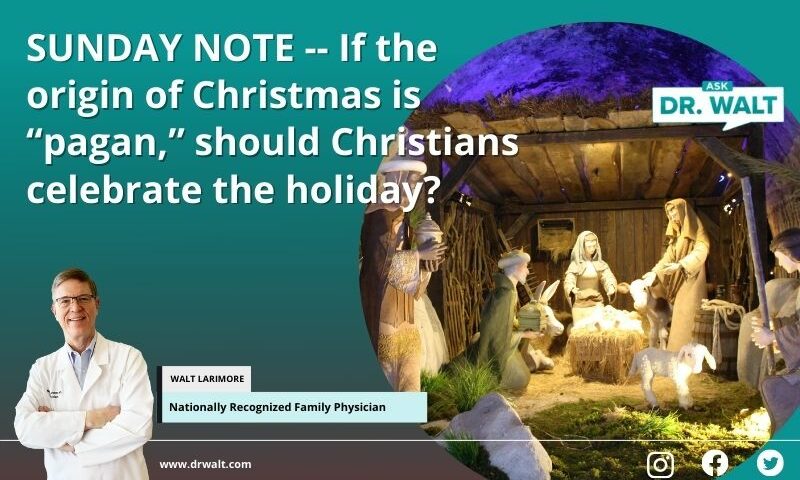If the origin of Christmas is “pagan,” should Christians celebrate the holiday?

Preventing a Christmas tree fire
December 16, 2023
Toy safety tips for Christmas day
December 18, 2023As we approach the Christmas holiday, Christians will often be challenged by those who note the “pagan” origin of Christmas. As a result, some Christians believe we should not celebrate the holiday at all, given the origin of its elements. Here are some thoughts on this topic from the wonderful folks at PleaseConviceMe.com:
 The Date of Christmas
The Date of Christmas
Jesus was not born on December 25th. This date was most likely borrowed from the pagan Saturnalia celebrations in the Roman Empire that were celebrated from December 17th to December 25th.
Gift Giving
This tradition was likely borrowed from the pagan Roman celebration of Kalends that originally occurred on January 1st. Strenia was the goddess of New Year’s gifts.
The Christmas Tree
The Romans decorated their houses with greens, as did the British “Druids” who used evergreens during their winter solstice rituals. In the latter part of the Middle Ages, Germans and Scandinavians placed evergreen trees in their homes (or outside their doors) as a symbol of hope in the upcoming Spring. Our modern Christmas tree appears to have been borrowed from these traditions.
The Yule Log
These same British Druids burned fires during the winter solstice season to burn the sins of the past year.
The Mistletoe
The Scandinavians also believed that a powerful God named Balder was defeated with a dart made of mistletoe. For this reason they decreed that Mistletoe was never again to be used as a weapon. In fact, Frigga (the goddess of love) gave a kiss to anyone who passed under the mistletoe.
With so much of our December Christmas celebration originating in pagan sources, should we celebrate the holiday at all?
Christmas was actually forbidden in England by an Act of Parliament in 1644, and following the Protestant Reformation, the Puritans strongly condemned the celebration of Christmas.
It was even outlawed in Boston from 1659 to 1681.
Christian groups and leaders of the past have resisted the celebration of Christmas due to its pagan origin.
But what about us? Should the pagan roots of Christmas disqualify it as a worthy celebration for Christians?
I don’t think so.
To understand the complete history of Christmas and the reason why we, as Christians, can celebrate it in good conscience, read the article, “What is the Truth About the Date and Origin of Christmas?” But, in short:
As Christians, it shouldn’t really matter to us what the origin of the holiday was all about. It shouldn’t matter what it originally represented or celebrated. What matters now is the new meaning that we have ascribed to the day, and this new meaning has power and practical use in our daily life.
We should not be ignorant of history. We should recognize that traditions and customs have grown over the years — and become highly commercialized. But in the midst of all of this we still know the truth, and we have simply adopted this holiday as a practical and real way to enjoy and celebrate our Savior.



